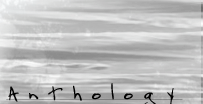
| Colleen J. McElroy |
| Gary McMannon |
| Tom Spanbauer |
|
Colleen J. McElroy By Genevieve Lebaron Colleen McElroy is widely respected as a folklorist and author of short stories, plays, essays and non-fiction writing, in addition to being a prominent poet. Though at one point primarily anecdotal, McElroy’s poetry has expanded to tell stories of lives all around the world with an intense sense of place, identity and the music of language. McElroy began writing by announcing her unique identity in her own voice, that of a black woman telling her own story in the music that created it. In Music From Home, she writes from a personal perspective, describing the stories and characters of her own life: “Grandma tells me which number to dial./ Then, I learn to wait for private calls/ from boys with three part names.” (“The End of Sisterhood“) Her tone is frequently one of clairvoyance and wisdom, but can at times be resentful as she details the pains of living in a white-dominated culture. In “Snow White in Aliceland,” she describes a woman in town, “Nerve worn with consciousness,/ Afraid I’ll move next door/ They march on anything/ in the name of virtue.” Music From Home tells the story not only of the writer but of the places that shaped her experience of the world with emotionally precise images. “The sidewalks were long where I grew up,/ they were as veined as the backs/ of my Grandma’s hands.” It is the exactness of the images and the intertwinement of that imagery with the emotion they afford, that weaves McElroy’s poems so tightly. “The heavy oak of table legs/ doubled in pairs/ by oak legs of Mama’s sisters,/ As I hide in a private jungle/ viewing the underside/ of table and kin.” Following the intense account of St. Louis came poetry collections exploring places and people around the country and later the world. These poems are unique in that McElroy manages to maintain her personal sense of place, detailing the images as precisely and intentionally as she did her home. “But Moroccan land suits her skin/ and she piles the Aryan fantasy of color/ chocolate queen strolling in the sun” (With Josephine in Tangiers) It is in these exquisite details that McElroy successfully bridges the oceans separating the United States and the rest of the world, while maintaining the exoticism of these places and simultaneously describing them in a deep familiarity. She clearly captures the essence of each country in imagery, but also in the accepting tone and wise voice her words embody. Each place lives a thriving and illuminated existence through McElroy’s mastery of language. This mastery is evident not only in the literary
aspects of the poems, but also in the music sounding behind the
language. “Villa above my veranda a woman watches/ as her
husband pounds rice,/ the sound bouncing from my commode/ to the
wrought iron gate until/ the whole hill shakes with each thrust.”
“Drawing in the Dark- A Jazz Monochrome”
from Travelling Music begins: This poem is one of many poems that connect the melodies of McElroy’s poetics to the melodies of her influences. It dissects the musical bearings that wind her words; the images, the rhythm and the words as notes all derive from external sources. It is her acute acknowledgement of these external sources and their intertwinement into her work that further the effectiveness of the music ringing in her poems. McElroy wrote first of her home, then of herself, and later of the larger world. It is her ability to recognize the interconnectedness of these subjects that allow each of them to carry her uniquely strong voice, personal tone and intense sense of place. In “Caution: This Woman Brakes for Memories”, McElroy intertwines images of her past and present homes as well as places she has visited with her unique melody:
…The silk calla lilies nodded yes Today on the beach at La Push, logs became |